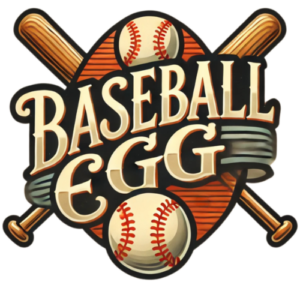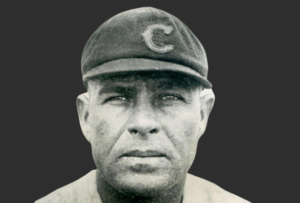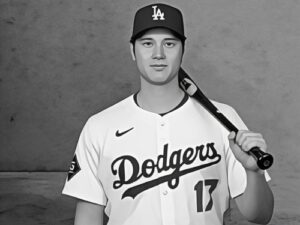In many ways, professional baseball mirrors America, for the good and the bad. Just like the history of the United States, baseball history has been scarred by scandal and bad deeds. Let’s run down the list of the greatest scandals in baseball history.
1. The 1919 Black Sox Scandal
When eight members of the Chicago White Sox conspired with gamblers and mobsters to rig the 1919 World Series, they perpetrated the worst sports scandal of them all. The scheme was the brainchild of first baseman Chick Gandil, who coordinated the fix with some low level gamblers. Gandil convinced the “malcontents” on the White Sox team to go along with his plan to intentionally lose the World Series in return for cash payments from gamblers who were in on it. Eventually, noted mob boss and gambler Arnold Rothstein bankrolled the operation, hoping to make hundreds of thousands or even millions by betting on the Reds.
The Sox lost the series in eight games (in a best-of-nine format), which raised eyebrows because the team was considered one of the most talented in history. Key to the plan were the participation of pitchers Eddie Cicotte and Lefty Williams, each of whom reportedly received $5,000 to pitch poorly. Star outfielder Shoeless Joe Jackson was given $5,000 in cash prior to the start of the series. Though he was later characterized as not having played crooked, Jackson admitted to taking the money. The entire affair was revealed nearly one year later, close to the completion of the 1920 season.
The fallout from the Black Sox Scandal changed the game. The owners reluctantly ushered in a commissioner, Kenesaw Mountain Landis, who was given nearly dictatorial powers. Landis banned the eight players even though they were acquitted in a sham trial in Chicago. Baseball suffered a black eye, but with Landis barring suspicious players, the era of gambling-influenced baseball was over.
2. The Steroid Era
Joe Canseco was not the first player to use steroids, but he was the first to talk about it. Disgruntled, Canseco published a tell-all book in 2005 that outed the national pastime’s addiction to performance-enhancing drugs. For years, the game was engulfed in the controversy.
Sluggers Mark McGwire, Sammy Sosa, Barry Bonds, Rafael Palmeiro, Alex Rodriguez, and Manny Ramirez, and pitcher Roger Clemens became the face of baseball’s Steroid Era. The sacred numbers of baseball were forever tarnished and the impact of steroids still casts a shadow over the game.
3. The Great Astros Trash Can Banging Sign-Stealing System
Bang the trash can, wait for your pitch, and smoke a line drive. That was evidently the system the Houston Astros used during the 2017 and 2018 seasons as they racked up more than 100 wins each year and won their first title. Through the use of illegal monitors and electronics near the dugout, the team relayed pitches to batters during home games. After the 2019 season, when the ‘Stros won the pennant, MLB suspended both their manager and their general manager, fined the team, and took away draft picks. The Astros responded by firing manager A.J. Hinch and GM Jeff Luhnow.
This isn’t the first time in baseball history that a team has used technology to steal signs, but as far as public relations nightmares go, this electronic sign-stealing scandal of ranks near the top. It may have only impacted a few games, and it may be that several teams were cheating (the 1918 Red Sox apparently used a similar scheme to steal signs in their championship season), but the Astros brazen rule breaking has called into question the legitimacy of the World Series. For many fans, the 2017 Astros are not worthy of championship status. This fiasco is still playing out as we enter the 2020 season.
4. Pete Rose Betting on Baseball
Compared to the other scandals on our list, this one didn’t do as much damage to the actual competition on the field, but it harmed the game of baseball and ruined the reputation of one of the sport’s greatest legends.
In 1989, MLB commissioner Bart Giamatti announced that baseball had learned Rose bet on games while he was manager of the Cincinnati Reds in the 1980s. Rose denied the allegation, Giamatti refuted him, and eventually the two sides came to an agreement: Pete would accept a “lifetime ban” and baseball would not officially find that he had bet on games. But in the press conference following the deal, Giamatti told the stunned press that he believed Rose had gambled on his own games while he was a manager. Rose has withered on the vine ever since, a baseball pariah, still ineligible.
The Baseball Hall of Fame quickly pushed through a rule that no one on the ineligible list can be considered for election. For that reason, Rose’s name and this controversy continue to dominate much of the discussion about Cooperstown. Rose later admitted he bet on games, but insisted that he never bet against the Reds.
5. The Owners Collude
Of all the scandals on this list, this one impacted the most pennant races. When MLB owners, prompted by commissioner Peter Ueberroth, conspired to not sign free agent players for three years, they effectively rigged competition in the sport.
In 1985, 1986, and 1987, MLB team owners operated under a handshake agreement to not sign other team’s free agents. The idea was to suppress salaries and defeat free agency as a tool for the players. It worked: in each of those three years the average MLB salary flattened and marquee free agents waited and waited for offers that never came.
The prominent players impacted by collusion included Kirk Gibson, Tim Raines, Jack Morris, Ron Guidry, Paul Molitor, and Carlton Fisk. Over one free agency season, only four of 36 free agents changed teams, and none of those four players were wanted by their old club. Ueberroth’s collusion stemmed the tide of long-term contracts, but it also stagnated competition and damaged the relationship between the players and owners, which set the stage for acrimony in the 1990s.
“The single biggest reality you guys have to face up to is collusion,” commissioner Fay Vincent told owners in 1990. “You stole $280 million from the players, and the players are unified to a man around that issue, because you got caught and many of you are still involved.”
The collective bargaining agreement stated very clearly: “Players shall not act in concert with other Players and Clubs shall not act in concert with other Clubs.” [emphasis added], and in the mid-1990s, baseball suffered their worst labor stoppage in history in part because the players distrusted ownership.
6. The Rigged World Series of 1918
One full year before the infamous Black Sox threw the World Series, the team across town, the Chicago Cubs, may have done the same thing. In 1918, following a shortened season and tight payroll restrictions from ownership during the First World War, a group of players on the Cubs reportedly hatched a scheme to lose games and profit from it during the Fall Classic against the Red Sox.
Most historians point to the play of Max Flack, who made a few suspicious miscues in the outfield during the 1918 Series, which the Cubs lost in six games. According to Eddie Cicotte, who played a major role in the 1919 Black Sox Scandal, Cubs’ players received $10,000 to swing the Fall Classic to the Red Sox.
7. The Al Campanis Comments
In 1987 you’d think baseball would have at least figured out how to delicately discuss the issue of racism. But, nope.
When the president of the Los Angeles Dodgers, a man named Al Campanis, appeared on ABC’s “Nightline” on April 6, 1987, he opened his mouth and swallowed his foot. Campanis made the outrageous claim that blacks “may not have some of the necessities to be a field manager or perhaps a general manager.” Host Ted Koppel could be seen to nearly gasp when he heard Campanis make his remarks. Within days, Campanis resigned from the Dodgers, and baseball was forced to address their prejudices.
8. The Scurrilous Career of Hal Chase & Crooked Baseball
Hal Chase represents the morally ambiguous nature of baseball before 1920. In that era, gamblers and shady characters hovered around the game, offering money and plying influence for their misdeeds. It’s possible that two or maybe even three World Series before 1919’s Black Sox Scandal were rigged. Often, late in the season when teams played “meaningless” games, players might conspire to throw games to the other club in order to make a fast buck. Ty Cobb and Tris Speaker were embroiled in such a scandal late in their careers that embarrassed the game.
But Chase was the master game fixer of his era. He never met a gambling proposition he didn’t like, and several times he was released or traded by managers who grew tired of his dishonest ways. Sadly, Chase was, by most accounts, a fine player, but history remembers him more for his corrupt ways. He was banned from organized professional baseball in the aftermath of the Black Sox Scandal in 1920, when the commissioner took action to clean up the game.
9. Pittsburgh Drug Trials
In the 1980s, America had a cocaine fetish. Why shouldn’t baseball have been any different? In 1985, following a federal investigation, several people who had access to the clubhouse in Pittsburgh’s Three Rivers Stadium, were indicted on drug charges. Eventually, eleven players were suspended and many others were implicated.
“I used cocaine for three years,” St. Louis and New York first baseman Keith Hernandez said, “I bought it or obtained it many times in Pittsburgh.” Hernandez estimated that forty percent of MLB players were using cocaine in the 1980s.
Pirates’ players Dale Berra, Lee Lacy, Lee Mazzilli, John Milner, Dave Parker, and Rod Scurry – and other notable major league players Willie Mays Aikens, Vida Blue, Enos Cabell, Keith Hernandez, Jeffrey Leonard, Tim Raines, Lonnie Smith and Alan Wiggins – were called before a Pittsburgh grand jury. Their testimony led to the drug trials, which made national headlines in September 1985.






